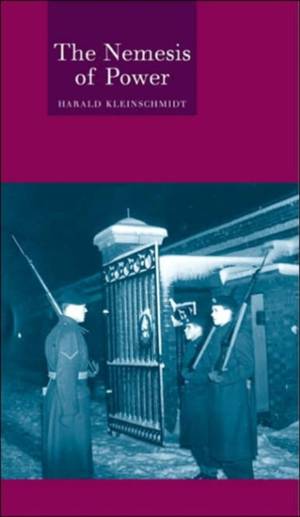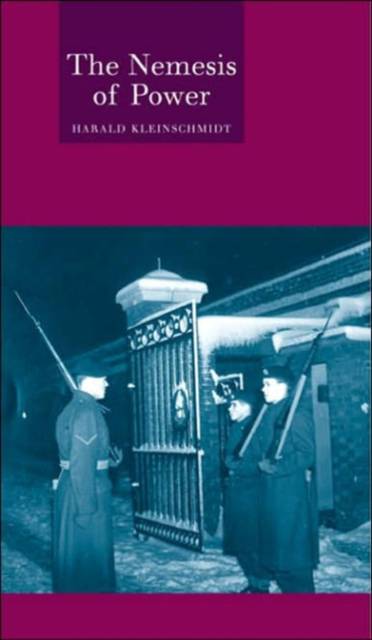
Je cadeautjes zeker op tijd in huis hebben voor de feestdagen? Kom langs in onze winkels en vind het perfecte geschenk!
- Afhalen na 1 uur in een winkel met voorraad
- Gratis thuislevering in België vanaf € 30
- Ruim aanbod met 7 miljoen producten
Je cadeautjes zeker op tijd in huis hebben voor de feestdagen? Kom langs in onze winkels en vind het perfecte geschenk!
- Afhalen na 1 uur in een winkel met voorraad
- Gratis thuislevering in België vanaf € 30
- Ruim aanbod met 7 miljoen producten
Zoeken
€ 30,95
+ 61 punten
Omschrijving
The Nemesis of Power is the first book to look at the history of international relations theories. Many theorists have investigated the nature of power, studying it in its social, political, economic, intellectual and physical contexts in order to define it. Rather than present yet another definition, Harald Kleinschmidt shows how the theorists themselves have perceived and handled the concept of power and how conduct in international relations has been evaluated. Taking a broad look at international relations theories from the Roman Empire to the modern transformation of the European world picture, Kleinschmidt bridges the gap between theory and history by subjecting theory to the logic and method of historical inquiry. Drawing on original sources, he reads international relations theories against their social and cultural contexts, placing an emphasis on the ways in which changes in theory are reflections of a wider pattern of changes in culture.
Specificaties
Betrokkenen
- Auteur(s):
- Uitgeverij:
Inhoud
- Aantal bladzijden:
- 280
- Taal:
- Engels
- Reeks:
Eigenschappen
- Productcode (EAN):
- 9781861890580
- Verschijningsdatum:
- 1/05/2000
- Uitvoering:
- Hardcover
- Formaat:
- Genaaid
- Afmetingen:
- 142 mm x 236 mm
- Gewicht:
- 526 g

Alleen bij Standaard Boekhandel
+ 61 punten op je klantenkaart van Standaard Boekhandel
Beoordelingen
We publiceren alleen reviews die voldoen aan de voorwaarden voor reviews. Bekijk onze voorwaarden voor reviews.









